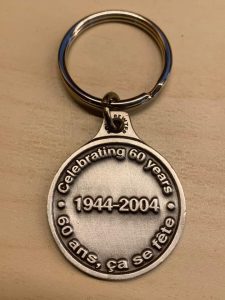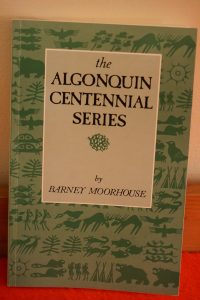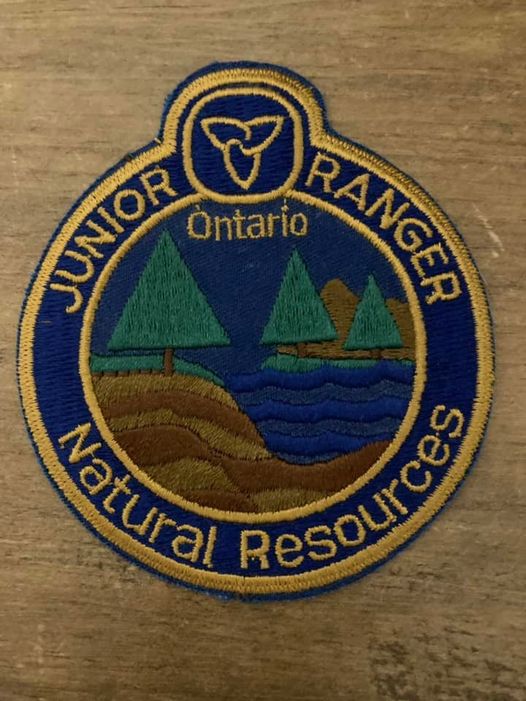ONTARIO’S JUNIOR RANGER PROGRAM – dated 2024-01-01
In 2004 the Ontario Ministry of Natural Resources’ Ontario Ranger Program was poised to celebrate its 60th anniversary “This is Ontario’s oldest youth employment program for 17-year olds,” wrote Lee-Ann Choquette, Communications Officer of the Youth Programs Office, Human Resources Branch, located on the 3rd Floor, South Tower, in Peterboro, Ontario. She continued to say that more than 75,000 people have worked as Rangers since the program officially began in 1944.

In 1943 the then Lands & Forests tried a small scale trial program. In 1944 there were 21 positions; the program grew to 143 Rangers in 23 camps by 1948; 283 positions in 1950. By 1973, my first year with the male program at Cashel Lake, Bancroft District, there were 2,058 J.R.s in 77 Ontario camps.
“Not only was 1973 a peak year for the program, it was the first year 17-year-old females worked as Rangers.” In 1975 Cashel Lake transitioned to an all female camp. The only male, I was the Camp Foreman.
By 2004 there were only 400 Rangers in 14 camps, many situated near or in an Ontario park. Eight female camps were located near: Sioux Lookout, Timmins, Kirkland Lake, Sudbury, Sault Ste. Marie, Fort Frances, Bancroft and Thunder Bay. Six male camps were near: Mattawa (Algonquin), Bancroft, Pembroke, Ignace, Cochrane and Chapleau. In fact, the Cashel Lake camp had moved to Harding Lake and then to Moose Lake, near Dorset. A male camp was operated at Machesney. My understanding is that these last two camps were included in Bancroft District. For many this was their first job experience away from home.
A special reunion was slated for August 7, 8, 2004, at Trent University.
MNR Minister David Ramsay, a former JR himself, announced the 60th celebration of Ontario Rangers, formerly known as Junior Rangers, or J.R.s. “As a former Junior Ranger myself, I can tell you it was the experience of a lifetime and I’m proud to serve as Natural Resources Minister while the program celebrates this milestone anniversary.”
A News Release stated that 400 young people would be spending 8 weeks at Ontario Ranger camps during the summer of 2004 working on a variety of projects including improving habitat for fish and wildlife, cleaning streams of debris, clearing trails and portages in provincial parks, stocking fish and monitoring plants and animal populations.

“The Ontario Ranger program is an important investment in our youth, our environment, and our communities,” said Ramsay. “By helping our young people succeed today, we are ensuring Ontario Succeeds tomorrow.”
After deductions, students earned approximately $1,500 during the summer. They received Ontario’s minimum wage minus a subsidized room and board rate of $69.00 per week. In 1975 the first girls’ camp in Bancroft District, as mentioned earlier, began at Cashel Lake*. The Camp Foreman was Barney Moorhouse, author of this article. (For more stories of Cashel Lake goto: https://thetimetraveller.ca and search for Kish-Kaduk and CJNH Volunteer Radio.)
In September 2012 Dalton McGuinty’s Liberal government cancelled the 70-year old Ontario Ranger Program, formerly known as the Ontario Junior Ranger Program. McGuinty replaced it with the Stewardship Youth Program (SYP) an existing day program apparently claiming that it would deliver the same experience and it would offer more employment.
“That hasn’t been the case,” reported supporters of the camp experience. The SYP involved local youth working in teams of 4 with one team leader. It was limited to 30 locations in smaller Ontario communities. On a personal note my observations of the SYP was that it in no manner had any resemblance to the Ontario J.R. program experience. Premier Dalton McGuinty (2003-13) had effectively killed the oldest youth employment program in Ontario. The MNR Minister was Michael Gravelle, referred to as Mr. Sand & Gravel, by another M.P.P.
Due to an apparent lack of interest the reunion was cancelled.

David Ramsay
Ramsay, from Oakville, Ontario, told me that he had never been to northern Ontario until he was a J.R. He attended the J.R. camp at White River located at White Lake Provincial Park. “We canoed to work each day,” he told me. “It was the adventure of a lifetime. It is known as the coldest place in Ontario. Winnie the Pooh was from White River.” He said that you would “never know where you’ll end up.”
The most memorable fishing expedition of his life including a shore lunch involved a gated road. He fondly remembered the camaraderie, the good hard physical work. The experience seems to have motivated Ramsay to live in New Liskeard where he farmed (cattle/grain), was Clerk-Treasurer and ran for public office. He was 37 when first elected as an M.P.P. “I brought my life experiences to the job and learned after.” As Minister his weekly routine involved driving to North Bay, flying to Toronto on Monday and reversing the process on Friday.
Born April 23, 1948 and adopted in Australia, Ramsay moved to Oakville at the age of one. He graduated from Concordia University. Following retirement he moved to Nova Scotia to be near his grands and died of congestive heart failure July 29, 2020.

Rick Stankiewicz
I first met Conservation Officer Richard Stankiewicz while writing my book “the Algonquin Centennial Series” in celebration of the Park’s 100th anniversary. He was a J.R. in 1973. Had he been assigned to Bancroft District he would have been in my Cashel Lake camp. In fact, he attended Mount Lake, north of Elliot Lake in the Blind River District. When I interviewed Rick he was located in Peterboro as an M.N.R. Provincial Enforcement Advisor, Provincial Enforcement Branch.

“It is really difficult to single out a memory of that summer. The whole summer was an experience for a country boy from the Cambridge-Preston area of southern Ontario. The setting of the camp was beautiful, on a point part way up Rawhide Lake. There were the demonstrations by the MNR (plane and fire crew), climbing the fire tower. I guess the canoe trip (portage cleaning) was probably one of the more unique things for me. I have a couple of boxes of slides from the trip and another from the rest of the summer as I was into photography then as I am now. It was such a neat experience to be out on the bigger water, rivers and portaging through the bush. My partner on the trip was Roger Mulligan, from Hamilton. We made a good pair staying in contact and going to Sir Sanford Fleming College in Lindsay together (room mates in first year). We have stayed in contact these 31 years (2004) and are still good friends. We got together last weekend for our own JR reunion (have pictures too). Roger settled down in the Thessalon area and is still there.”
I asked if the JR experience was a factor in Rick’s current career.
“You bet!” He continued that although he always had an interest in the out of doors his direction was set. After 3 years, graduating S.S.F.C. as a F&W Technologist, it was simply a matter of finding fulltime work with the MNR. “My contracts and volunteer Deputy Conservation Officer work in Maple and Cambridge Districts was enough to convince me that the enforcement role was the one I preferred. It is interesting though the way the summer of 1973 would play a part in future events. When I was a Deputy CO in Maple in the mid-70’s I was teamed up with a CO, Al Farrer, from Hearst who was my Foreman from 1973. In 1987 when I got the job in Algonquin Park District it turned out that my predecessor was yet again my foreman. Then Al and I were President and Vice President (respectively) of the Ontario Conservation Officer’s Association for four years around the time of the CO centennial. Al and I have remained friends over the years.
![1m. Russella1[3]](https://thetimetraveller.ca/wp-content/uploads/2024/01/1m.-Russella13-300x298.jpg)
* Cashel Lake GPS – 44.925341, 77.553575; address – 3 Parkside Trail, Gilmour, ON, K0L 1W0
